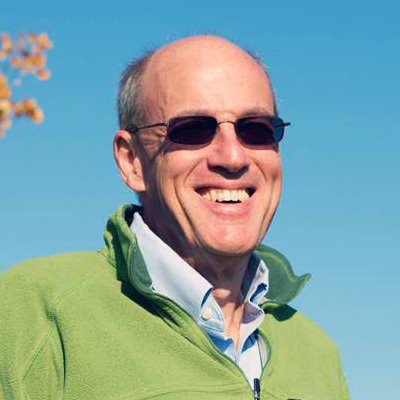Long-term measurements and experiments that explain the effects of disturbance on ecosystems, and inform their remediation and recovery
An ecosystem is made up of organisms and their environment, including soil, water, and air, and their interactions. Ecosystems can be impacted by air pollutants including the release of sulfur dioxide, nitrogen oxide, and mercury; changing climate; as well as land disturbance and nutrient inputs. Dr. Charles Driscoll, Distinguished and University Professor of Civil and Environmental Engineering at Syracuse University, addresses the consequences of human activities on ecosystem structure and function, and develops cost-effective approaches to mitigate these consequences. His work largely looks at ecosystems and the components of ecosystems that make up the natural environment, like forests, wetlands, streams, lakes, and estuaries to the oceans. By examining pollutant inputs and other disturbances to ecosystems and studying their response to these perturbations, Driscoll determines the severity and consequences of these impacts and identifies approaches to restore the form and function of disturbed ecosystems.
Dr. Driscoll’s work is largely field-focused and addresses long-term -- or decadal -- responses of natural environments to disturbances. Using a multi-tiered approach, he: 1. measures the inputs of energy, water, and different chemicals, and their processes and transformations within the ecosystems; 2. conducts large-scale experiments over many decades to track how ecosystems respond to acid rain and climate change obtaining insight to restore these environments back to a healthy state; and 3. creates and applies computer models to gain a better perspective of disturbances. He simulates the past conditions of ecosystems before disturbance occurred and projects forward under future environmental management scenarios. Dr. Driscoll, who has been advancing environmental research for more than 35 years, is also strongly engaged in outreach, providing public lectures to universities and stakeholder groups, and briefings for government agencies, non-government organizations, and industries. Creating an active discourse around these issues, Driscoll ultimately hopes that findings will inform the public and environmental managers and lead to innovative and effective environmental policies.
Current projects include:
- Climate Change: Dr. Driscoll and his team are investigating how changes in temperature and precipitation associated with climate change are affecting ecosystems, and how human and ecosystem health might respond to the reduction of pollutants associated with the release of carbon dioxide.
- Acid Rain: Acid rain, after its peak, is now decreasing. Dr. Driscoll thus is examining how ecosystems are responding to this decrease, how fast they are recovering, or if there has been irreversible damage.
- Mercury: By exploring how mercury enters the ecosystems and is processed, Dr. Driscoll and his team seek to understand how ecosystems might respond as releases of mercury are controlled.
- Nutrient Inputs: Dr. Driscoll and his team also study how the overabundance of nutrients like fertilizers for plant growth -- from air pollution or land processes -- are processed in the ecosystems and are released back into the atmosphere and to water.

Bio
Dr. Charles Driscoll is a Distinguished and University Professor of Civil and Environmental Engineering at Syracuse University. His teaching and research interests are in the areas of environmental chemistry, biogeochemistry and water quality modeling.
As an undergraduate Dr. Driscoll became interested in environmental engineering. In graduate school his interests expanded to include effects and management of large scale environmental problems. Initially he studied the impacts of acid rain on freshwaters and forests. Over time, he has branched out and worked on effects of different types of disturbances on ecosystems, including global, regional and local scale sources of mercury in the environment; climate change impacts; restoration of the Everglades, FL, Onondaga Lake, NY, and the Penobscot River, ME; and land use change. In addition to applied and basic research, Dr. Driscoll has a passion for science communication and outreach.
Outside of research, he enjoys spending time with family and friends, and engages in a broad range of hobbies including music and reading. He also enjoys outdoor exercise such as golf, running and cross country skiing.
For more information, visit www.ecs.syr.edu/faculty/driscoll/personal/

In the News
The New York Times
The Washington Post
The Christian Science Monitor
The Washington Times
Publications
Videos
Awards
National Academy of Engineering, 2007-present
Highly Cited Researcher for Engineering and Environmental Science, 2003-present
Institute of Scientific Information
Presidential Young Investigator Award, 1984
National Science Foundation


